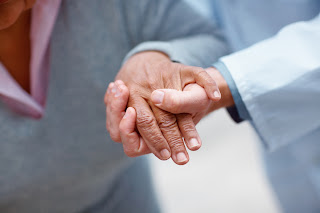Hip fracture is one of the
main diseases causing disability
in the elderly.
Recovery geriatric units or
medium-stay units are responsible of the rehabilitation of this
pathology. Rehabilitation is focused in recovering the lost function
for the elderly to have a better quality of life and he does not need to be institutionalized.
In these units a comprehensive assessment of the elderly is made. Each professional evaluates their specific area and then they are coordinated to take all necessary decisions with the patient.
In these units a comprehensive assessment of the elderly is made. Each professional evaluates their specific area and then they are coordinated to take all necessary decisions with the patient.
After the discharge they will monitor
the patient progress.
The hip fracture increases more and more among the elderly. According to the study
of "Injuries from falls are increasing in the elderly." The results of this study are that from 1970 to 1995/1997
hip fractures have become of 1857-7122.
So care level workers have prevent this disease as much as possible.







